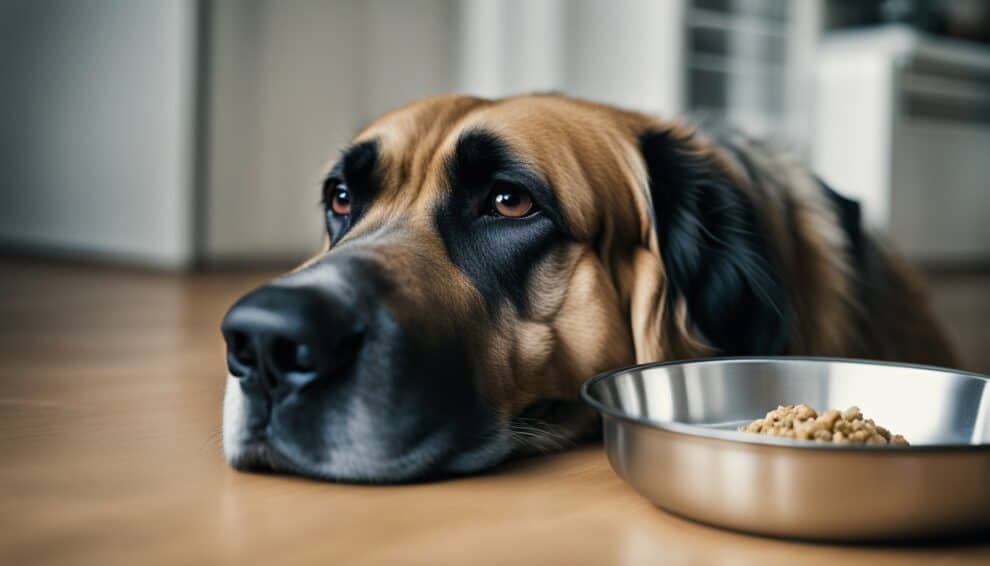Zinc plays a vital role in maintaining the health and well-being of your dog, especially if you’re the caretaker of a large breed.
Large breed dogs like Great Danes, German Shepherds, and Labrador Retrievers require a well-balanced diet to stay healthy, and zinc is a key nutrient in this equation.
Its impact on your dog’s body is far-reaching, influencing everything from the immune system to skin health.
If your dog isn’t getting enough zinc, you might notice symptoms such as dry skin, hair loss, or a sluggish demeanor.
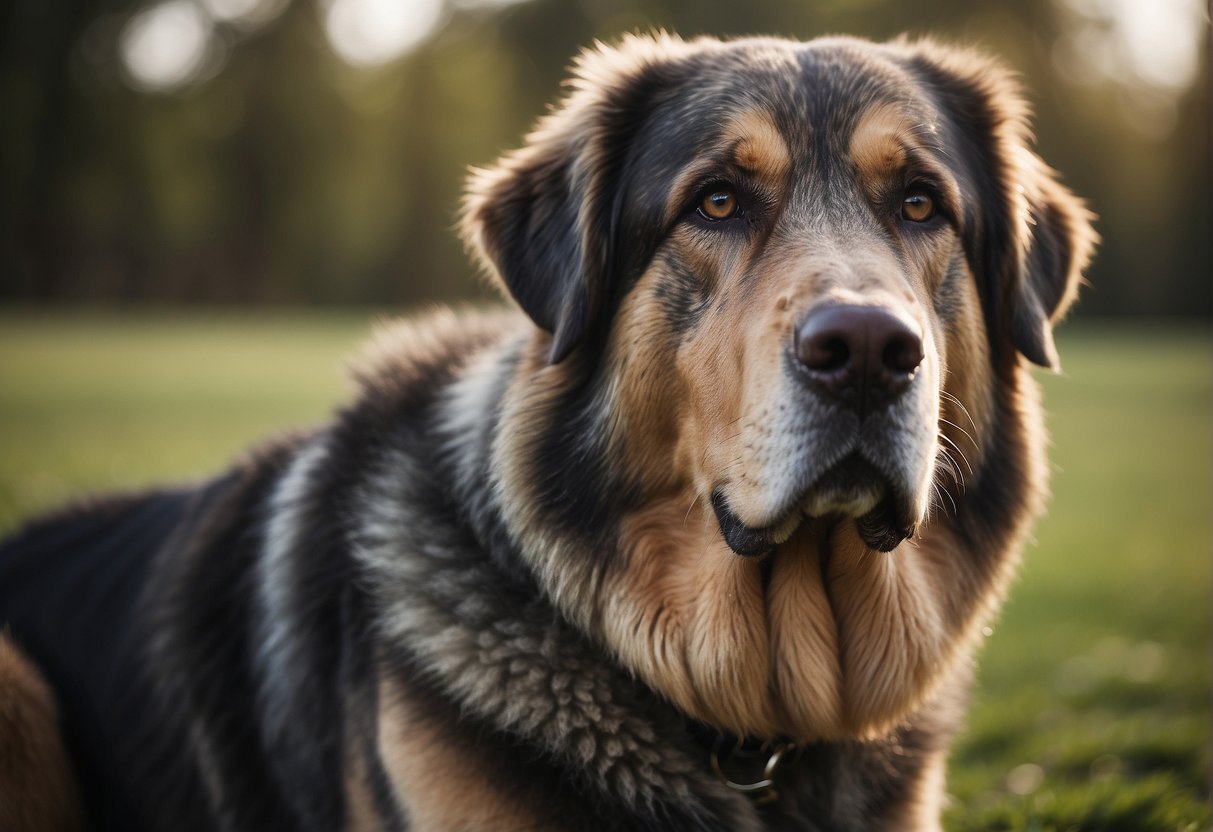
Certain breeds like Alaskan Malamutes, Siberian Huskies, and Doberman Pinschers can be more susceptible to zinc deficiency, which means you should be particularly vigilant about their zinc intake.
Issues can arise not just from insufficient zinc in their diet, but also from their body’s inability to absorb it adequately.
This mineral is essential for a range of bodily functions, including enzyme activity, cellular metabolism, and the maintenance of healthy skin and coats.
Staying informed about the needs of your large breed dog can help you prevent zinc deficiency and its associated problems.
By understanding which breeds are at higher risk and the signs to look out for, you can take proactive steps to ensure your dog gets the necessary nutrients for a vibrant and energetic life.
Identifying Zinc Deficiency in Dogs
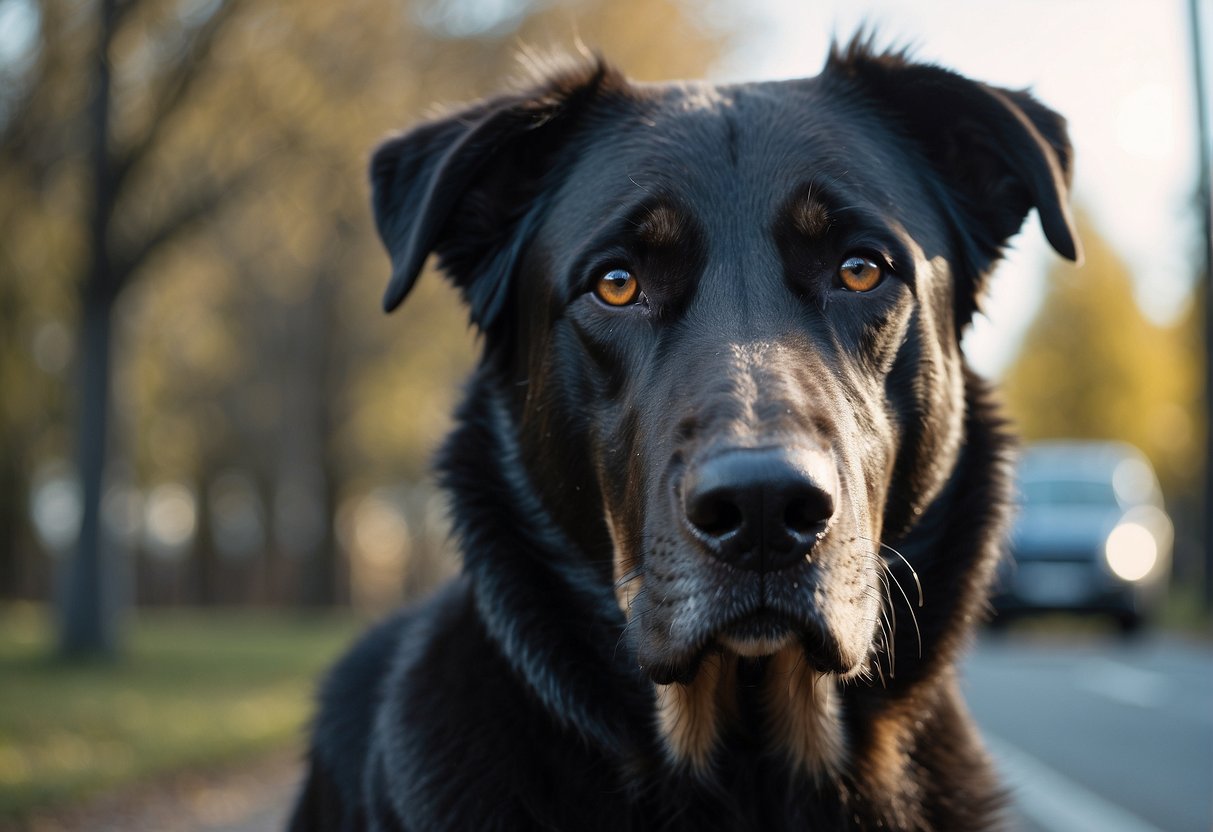
Zinc deficiency can seriously affect your dog’s well-being, showing up in a range of physical signs and symptoms.
Understanding these signs, as well as how to diagnose and recognize breed-related risk factors, is key to maintaining your dog’s health.
Common Signs and Symptoms
If your dog is suffering from a lack of zinc, you might notice one or more of the following issues:
- Skin Problems: Zinc plays an essential role in maintaining healthy skin.
Therefore, skin lesions, particularly around the mouth, eyes, and ears, could be a sign.
- Hair Loss: A dull coat or hair loss can also indicate a deficiency.
- Digestive Issues: Diarrhea, a common symptom, can further complicate the situation by hindering nutrient absorption.
- Lethargy: Reduced zinc levels might result in a noticeable decrease in energy or lethargy.
Diagnosing Canine Zinc Deficiency
To accurately determine if your dog has a zinc deficiency, these diagnostic methods are commonly employed:
- Blood Test: A simple blood test can measure your dog’s zinc levels.
- Skin Biopsy: In cases where skin lesions are present, a skin biopsy is often conducted to rule out other conditions.
Specific Risk Factors for Large Breeds
Certain large breeds have a natural predisposition to zinc malabsorption problems:
- Breeds at Risk: Specifically, Great Danes, German Shepherds, and Alaskan Malamutes may require closer monitoring.
- Dietary Zinc Absorption: These breeds may struggle with absorbing zinc from their diet, necessitating a closer look at their nutritional intake.
Being aware of these signs and understanding the risk factors, especially if you own a large breed dog, can help you prevent and address zinc deficiency before it impacts your dog’s health significantly.
Causes of Zinc Deficiency in Dogs
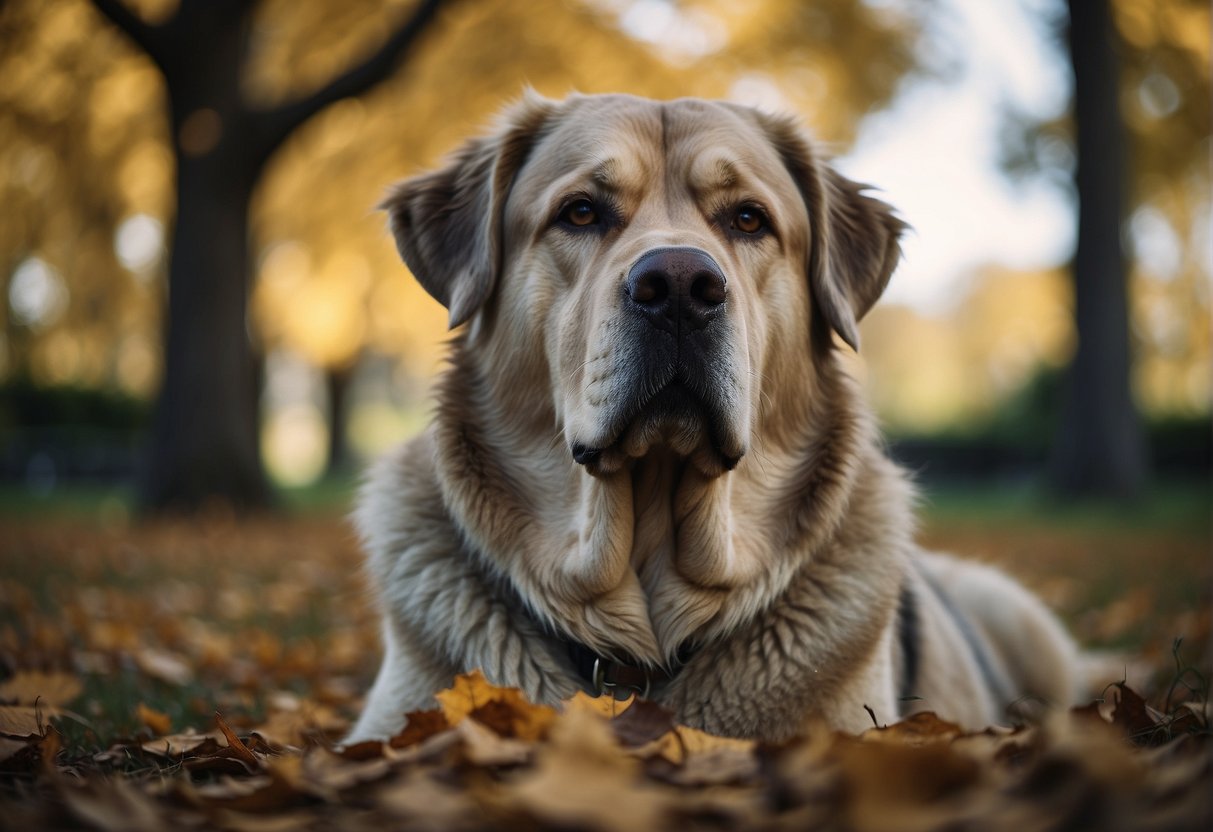
Understanding the reasons behind zinc deficiency in your dog is crucial for preventing health issues related to inadequate levels of this essential mineral.
Let’s explore the main causes hindering the adequacy of zinc in your dog’s system.
Inadequate Dietary Intake
Your dog’s diet is the foundation of their nutrition, and not getting enough zinc through their meals is a primary cause of deficiency.
Often, commercial dog foods might not meet the zinc requirements of large breed dogs, especially if they have higher dietary needs due to their size or breed.
Including zinc-rich foods in their diet is essential. These include:
- Meat: High in bioavailable zinc, especially beef and lamb
- Fish: Source of protein and minerals, including zinc
However, it’s vital to balance their overall nutrition because an excess of other minerals, like calcium and phosphorus, can interfere with zinc absorption.
Impaired Absorption and Utilization
Even with a proper diet, your dog might still suffer from zinc deficiency due to issues with absorption and metabolism.
Several factors can impair your dog’s ability to absorb and utilize zinc properly:
- Phytates: Found in grains and plant-based diets binding zinc and inhibiting its absorption
- Mineral Imbalance: High levels of calcium, phosphorus, and other minerals can compete with zinc for absorption
- Protein and fat in the diet can affect zinc absorption; some proteins can enhance while others can inhibit
In addition, certain medical conditions or genetic predispositions can influence how well your dog’s body can absorb and make use of dietary zinc, requiring specific nutritional strategies to manage their condition.
Effects on Health and Development
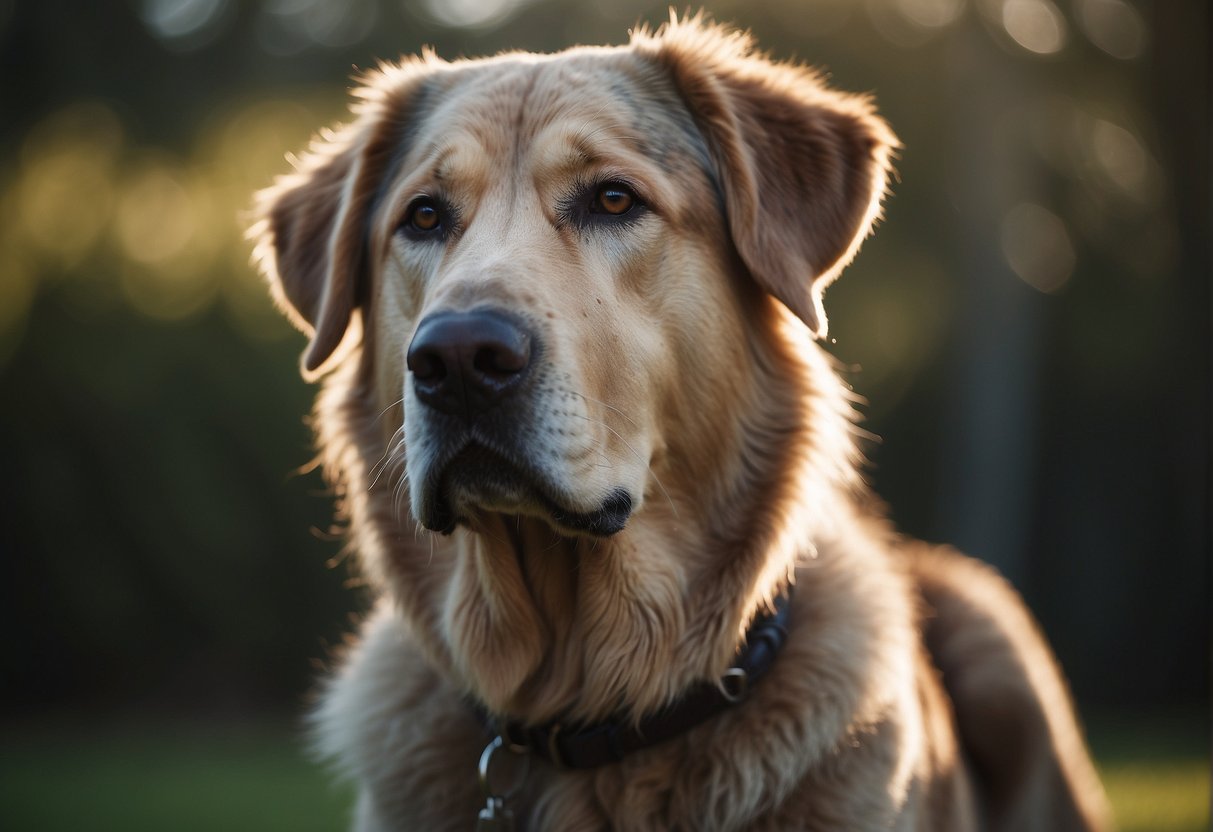
When you’re raising a large breed dog, understanding the impact of zinc deficiency is crucial for ensuring their optimal health and development.
This trace mineral plays an essential role in various physiological functions, from maintaining healthy skin and coat to supporting robust immune defense.
Impact on Skin and Coat Condition
Zinc is vital for maintaining your dog’s skin health and the quality of its coat.
A deficiency can lead to zinc-responsive dermatosis, which typically presents itself with symptoms such as hair loss, itchy skin, and the development of crusts and scaling.
To spot this early, watch for any unusual changes in your dog’s coat or skin, such as dullness or patches of thinning hair.
Influence on Growth and Development
Your large breed puppy’s growth is significantly influenced by adequate zinc levels.
Zinc assists in proper bone development and the overall growth process.
A shortage might manifest in stunted growth or bone malformations.
Therefore, it’s essential to ensure that your growing pup gets a balanced diet that meets all their zinc requirements.
Consequences for Immune System Function
Zinc’s influence extends to the immune system, where it plays a part in wound healing and helps protect against infections.
If your dog is often ill or seems to heal slowly from wounds, it might be a sign that their immune system is compromised due to a zinc deficiency.
Proper zinc levels are important to bolster your dog’s immunity and keep them healthy.
Zinc Supplementation and Treatment
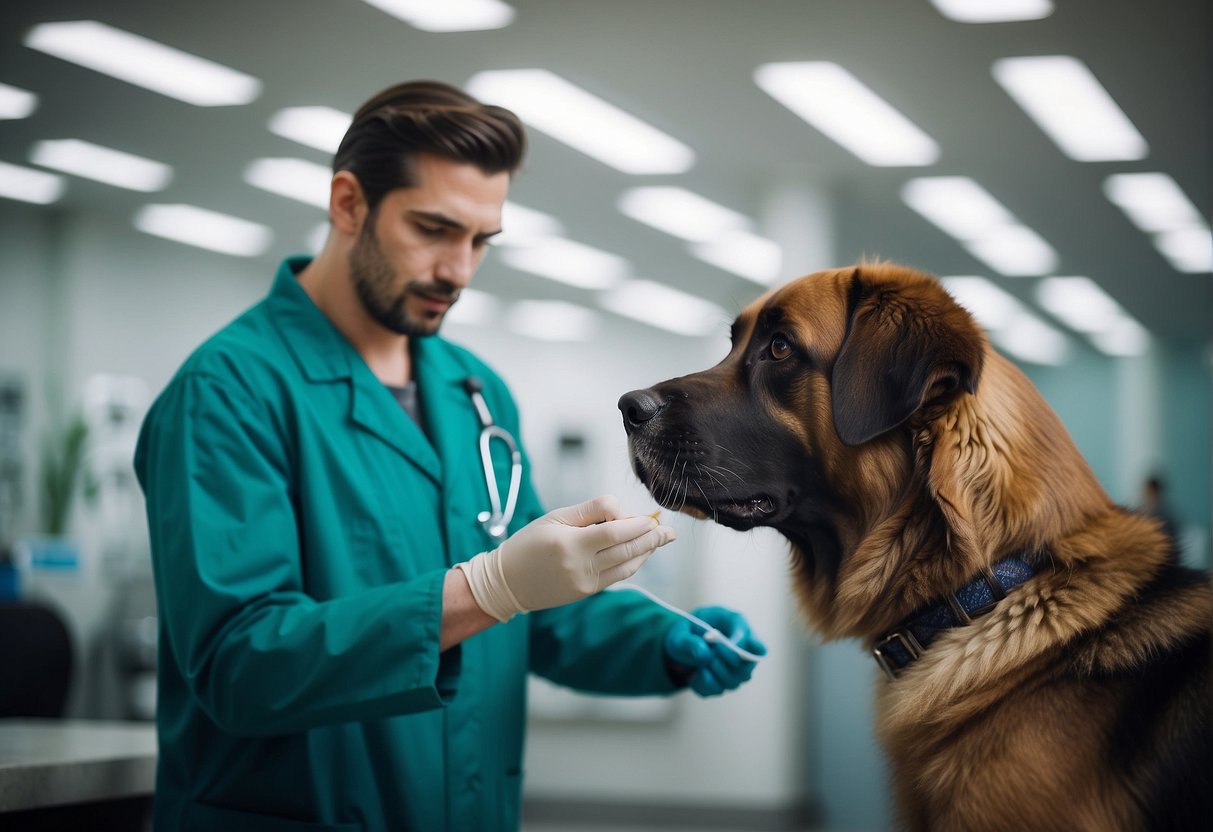
When it comes to your large breed dog’s health, understanding the role of zinc and how to properly supplement it can be crucial.
Zinc plays a significant role in numerous bodily functions, including enzyme function and immune health.
Here’s what you should know about zinc supplementation and treatment for your dog.
Recommended Zinc Supplements
For your large breed dog, zinc sulfate is commonly recommended as an effective supplement.
You may also find chelated zinc, which is bound to a protein, making it easier for your dog to absorb.
Include zinc as part of their balanced diet, ensuring they receive the correct nutrition that supports overall health.
Appropriate Dosage and Administration
It’s paramount to get the dosage of zinc right, as both deficiency and excess can cause problems.
The typical dosage for a large breed dog can range from 5 to 10 mg of zinc per kg of your dog’s body weight, administered once per day.
Always consult your veterinarian, as they will consider your dog’s specific nutritional needs, age, and health status before prescribing zinc supplements.
Monitoring and Managing Treatment
Monitoring zinc levels in your dog is a key part of management to prevent both deficiency and excess.
Regular blood tests can measure your dog’s zinc levels.
Pay attention to your dog’s overall condition and behavior; improvements in coat quality and immune function can indicate effective management.
Always report any health changes to your vet during treatment so that they can adjust the supplementation plan as necessary.
Preventive Measures and Dietary Management
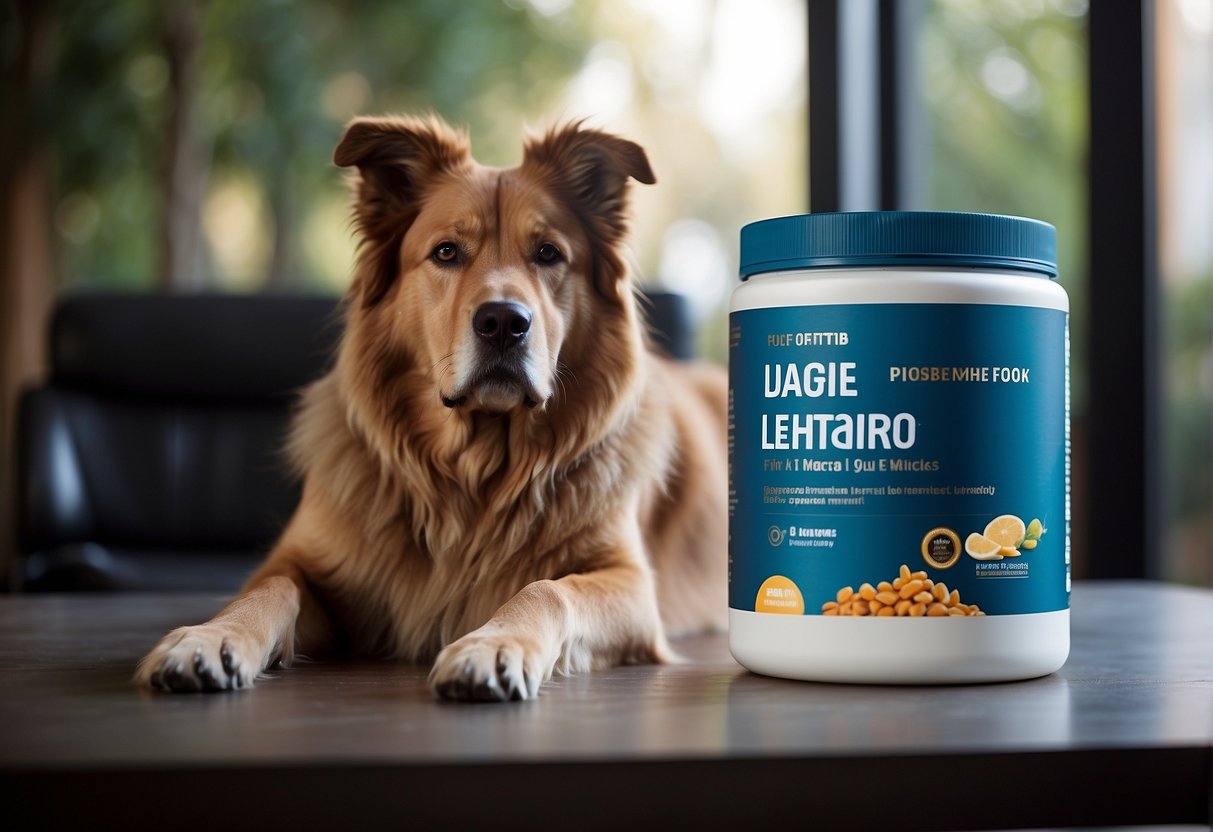
To safeguard your large breed dogs from zinc deficiency, a proactive approach centered around carefully crafted nutrition is essential.
By focusing on a balanced diet, prioritizing zinc-rich foods, and understanding the role of companion nutrients, you can ensure your dog maintains optimal health.
Formulating a Balanced Diet
In constructing a balanced diet for your large breed dog, consider the appropriate ratio of proteins, fats, carbohydrates, vitamins, and minerals.
Zinc is a trace mineral that should be present in your dog’s diet to support essential enzymes and hormones, including thyroid function.
Regular veterinary check-ups and professional consultations can guide you in tailoring a diet specific to your dog’s needs.
- Proteins: Aim for high-quality sources.
- Fats: Include essential fatty acids for overall health.
- Carbohydrates: Provide energy and should be present in moderation.
- Vitamins and Minerals: Ensure appropriate amounts to avoid deficiencies or excesses.
Zinc-Rich Food Sources
Incorporate zinc-rich foods like fish into your dog’s diet, as fish not only provides zinc but also contains beneficial essential fatty acids.
- Fish: A great source of zinc and omega-3 fatty acids, which are vital for skin and coat health.
- Meat: Red meats have a high zinc content beneficial for growth and repair.
- Supplements: If necessary, your veterinarian may recommend zinc supplements, but only under professional supervision.
Remember, the key is not only the quantity but also the bioavailability of zinc in these foods.
Understanding the Role of Companion Nutrients
Companion nutrients enhance zinc absorption and utilization in your large breed dog’s body.
The interplay between various dietary components can affect how well zinc is utilized.
- Vitamin A: Facilitates zinc absorption.
- Calcium and Phosphorus: Maintain a balanced ratio to avoid interference with zinc uptake.
- Copper: Monitor intake as high levels can inhibit zinc absorption.
By understanding the synergistic effects of these nutrients, you can create a dietary plan that supports your dog’s overall nutrition and thyroid function, preventing potential deficiencies.







